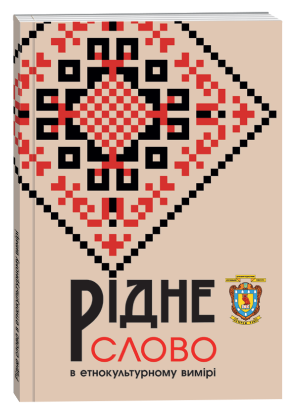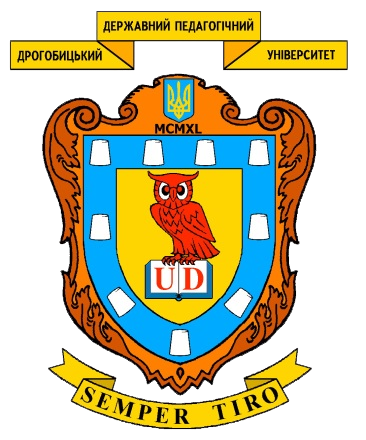VERBAL VISIONS MYTHOLOGIZATION IN CONTEMPORARY UKRAINIAN ONLINE POETRY ABOUT WAR
DOI:
https://doi.org/10.24919/2518-1602.2023.5Keywords:
online texts, verbal visualisation, mythology, consciousness, figurative system, contemporary Ukrainian poetryAbstract
The article is concentrated on the analyses of the online poetry created during the Russia-Ukraine war. The methodological basis of the network literature study, as a unique cultural phenomenon, has been formed by the works of Ukrainian scientists Yu. Zavadskyi, M. Ryabchenko, and T. Tsepkalo. The issue of visualization of online pieces of literature, as a way of accentuating the image system, has been investigated by M. Yatsymirska. T. Pastukh's articles are important for fixing the trends of the modern online poetry movement during the Russian-Ukrainian war. Texts for the analyses are the pieces of poetry by O. Gerasimyuk, D. Lazutkin, S. Ruban, A. Khvost, V. Ganai, A. Yutchenko, S. Perch, M. Ponomarenko, V. Kravchenko, I. Gonchar, L. Leschuk, V. Zadorozhny, M. Krasyuk, O. Zhdanyuk, Shura Strila, published by the authors on their own pages or pages of various groups in social networks and Internet platforms during full-scale military operations (2022). The attention is focused on the peculiarities of a literary text presentation in the network space through the combination of verbal material and visual content, which enhances the emotional impression of the work. Online poetry related to the war subject has a specific intonation, the main tonality of which is aimed at increasing the empathy of the addressee. The unity of word and image, which strengthens it, affects the reader/spectator. A new form of communication dialogue has been formed in this way. The authors of the article drew attention to the peculiar kinship of the poetic texts of wartime. According to the results of the analysis, it has become clear that the online poetry by various authors presents a form of reactive action, in which a certain tendency can be traced, specifically rational consciousness is inferior to unconsciousness, and unconscious breaks through the normalized conscious. The Ukrainian mentality is visualized in this way, which is manifested with the help of ancient mythological images-symbols (Mothers-ancestors, Berehynia, Witches, dolls, etc.), biblical images (Christ, Mother of God, St. Nicholas) or images of legendary antiquity (Attila). The researchers drew the conclusion that the terrible experience of war in online poetry has been accumulated, on the one hand, with the help of illustrative visualization, on the other hand, through the figurative system of works, which gravitates to different levels of foundations of existence (archetypal, deep-mythological, and biblical).
References
Завадський, Ю. Р. (2006). Типологія й поетика мережевої літератури і сучасне західне літературознавство: автореф. дис. на здобуття наук. ступеня канд. філол. наук. Тернопіль. 18 с.
Кошкіна, С. (2023). Література часів війни. URL: https://pen.org.ua/literatura-chasiv-vijni.
Маркова, В. (2015). Феномен мережевої літератури: книгознавчий аспект,1, 42–45.
Матвєєва, В. Є. (2019). Мережева література як невід’ємна складова сучасного літературного процесу (на прикладі творчості поеток І.Сажинської та О.Ольшанської). URL: http://ukrlit-2017.blogspot.com/2019/02/ blog-post_97.html.
Пастух, Т. (2023). Поезія в час війни (І). URL: https://zbruc.eu/node/112014
Пастух, Т. (2023). Поезія в час війни (ІІ). URL: https://zbruc.eu/node/112646
Пастух, Т. (2023). Поезія в час війни (ІІІ). URL:https://zbruc.eu/node/113426
Рябченко, М. (2019). Жанрова різноманітність воєнної прози в сучасній українській літературі. Najnowsza słowiańska literatura i kultura popularna. Figury swojskości i obcości współczesnego świata w literaturze i kulturze popularnej krajów słowiańskich, 277–289.
Цепкало, Т. О. (2020). Міфологізм української поезії ХХ століття як об’єкт літературного дискурсу. URL: http://www.baltijapublishing.lv/download/monograph/colmomo_fil/22.pdf
Яцимірська, М. (2015). Візуальні тексти в соціальних мережах (рефлексії, концепти, емоції),40, 361–369.







